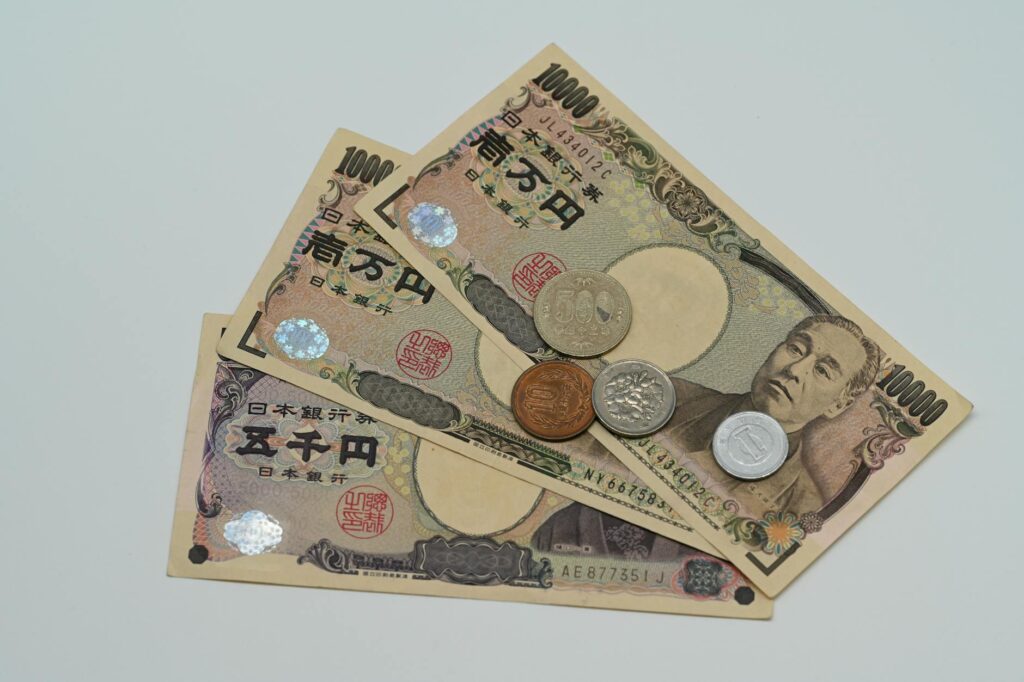If you’re already living in Japan or planning to move to Tokyo, one of your biggest questions is probably: How much does it really cost to live in Tokyo? Most websites give general data, but I want to share what I actually pay – based on 8 years of living and working in Tokyo as a foreigner.
Let’s break down the main living costs one by one, using real numbers from my monthly budget, and I will give you my real tips to save the cost of living in Tokyo.
🏠 Rent (¥120,000/month)

One of the biggest amount of cost of living in Tokyo is the rent. Rent in Tokyo varies a lot, but according to Suumo(One of the biggest real estate websites in Japan), the average monthly rent for a 1K room in Tokyo 23 wards is around ¥88,300 in 2025.
| Ward | Price | Ward | Price |
| Minato-ku | ¥113,000 | Setagaya-ku | ¥87,000 |
| Sumida-ku | ¥89,000 | Adachi-ku | ¥72,000 |
| Shinagawa-ku | ¥90,000 | Nerima-ku | ¥74,000 |
In my case, I live in a 1DK apartment (one room + separated dining room + kitchen) in the Tokyo suburbs, 15 minutes by bus to Tokyo station. If you want to live in central Tokyo area, the rent can easily go over ¥100,000/month.
😉Mochi’s tip to save the cost of living in Tokyo
- If you still want to live in the central Tokyo area and at the same time reduce the cost of living, a share house can be a option, which will costs around ¥30,000-¥60,000 per month. Usually a share house has good location nearby Shinjuku or main areas. There are a lot of share house companies, like gg-house or x-house, so you can take a look at their websites.
- Consider finding a house close to your workplace or school, even if it’s outside the central area. Many local towns around Tokyo (like Nakano, Koenji or Kita-senju) offer lower rent, convenient local facilities, and great quality of life. These areas are often well-connected but less expensive than the main hubs – and you will also save on transportation costs, which I will explain more below.
🔌 Utilities & Internet & Mobile Phone (¥10,000–20,000/month)

Utility costs in Tokyo can vary a lot depending on your apartment type (how many rooms/ACs you have, etc), season, and lifestyle. But here is my actual spent amount last month:
| Category | Price |
| Electricity | ¥7,300 |
| Gas | ¥2,000 |
| Water | ¥1,800 |
| Internet for house | Free |
| Mobile phone | ¥3,278 |
Usually, the electricity bills are the biggest part of utilites. Moreover, in summer (July-September) and winter(December-February), electricity bills can jump due to air conditioner and heater usage. For example, last summer, my electricity bill once hit ¥17,000. 😥
By the way, as you can see, Internet costs for my house is free and my mobile phone fee is quite cheap. Let me share you my tips to you below:
😉Mochi’s tip to save the cost of living for Internet & Mobile phone
- Find an apartment with Internet included! If you find a room which is internet-included, you can save ¥4,000-¥6,000 per month. It’s a huge amount of saving cost of living in Tokyo and the free Internet actually offers good speed.
- Use cheap mobile plan provided by Rakuten Mobile, UQ Mobile, Y!mobile or etc. I’m using Rakuten Mobile for more than 5 years and they offer unlimited data for around ¥3,278/month with good speed of 5G.
🍱 Food (¥35,000/month)

Food expenses in Tokyo can be affordable if you cook at home, but eating out regularly will quickly increase your monthly spending.
On average, I spend about ¥35,000 per month, combining home cooking and occasional dining out. My average grocery bill per month is ¥15,000-¥23,000, plus around ¥10,000-¥20,000 for eating out. When you eat out, the average price is ¥800-¥1,200 for lunch, ¥1,500-¥2,000 for dinner. Of course the price varies a lot depending on the location or menu, but if you choose local spots, restaurants are affordable.
😉Mochi’s tip for reducing costs for groceries and eating out
- Find a cheaper supermarket nearby your place. For example, instead of MyBasket supermarket, LIFE, Hanamasa or Gyomu supermarket sells products with good price. Find your nearest supermarkets by the links above!
- Try lunch sets(ランチ定食)offered by almost all restaurants instead of dinner. They are much cheaper than dinner and often include drink and dessert for ¥800-¥1,000 in total!
🚃 Transportation (¥10,000–13,000/month)

The public transportation in Tokyo is convenient, safe and punctual, but it can get expensive if you’re commuting daily or exploring a lot.
A single ride on public transportation usually costs ¥180-¥400, depending on distance and train company (JR/Metro). If you are commuting to work or school regularly, most people in Tokyo buy a monthly commuter pass, which costs ¥8,000-¥15,000 per month, depending on the route. This pass also allows unlimited rides within the selected routes, even on weekends – which is great for saving extra. I pay about ¥11,000/month for a commuter pass that covers my route to work.
😉Mochi’s tip for reducing costs for transportation
- Avoid JR lines for short-distance travel in central Tokyo. Tokyo Metro is cheaper and it covers most major areas like Shibuya, Shinjuku, Ginza, Ueno and Ikebukuro. For example, a typical Metro ride starts at ¥180, while JR often starts around ¥210-¥220.
- On weekends, you can explore Tokyo with 1-day unlimited metro passes (¥600), which are perfect for exploring and sightseeing.
📝 Final Thoughts about Cost of Living in Tokyo

Cost of living in Tokyo doesn’t have to be as expensive as many imagine — especially if you make smart choices about where to live, how to commute, and what to prioritize.
From the rent and food to utilities and transportation, I’ve shared the real costs I actually pay as a foreign resident in 2025. Make sure to check out “Mochi’s Tips” throughout the post to make even smarter spending decisions. If this helped you, feel free to explore more real-life guides at my blog — written from firsthand experience, not just theory.

